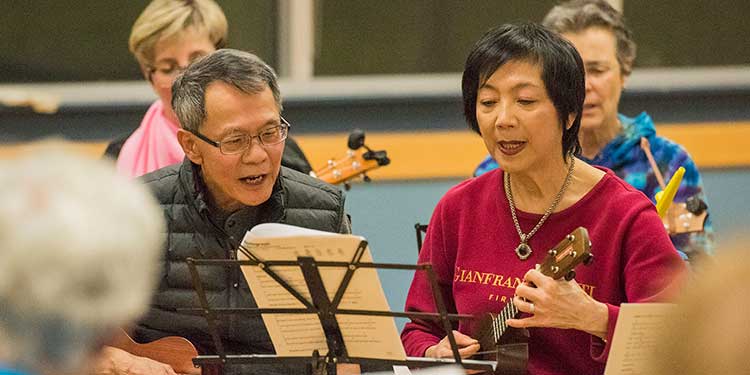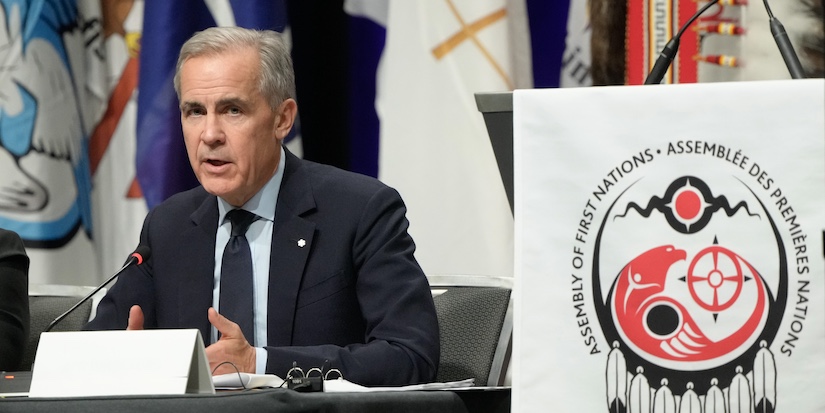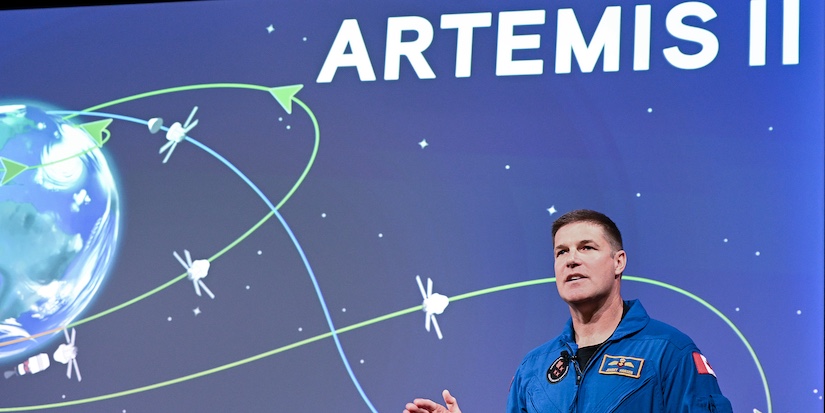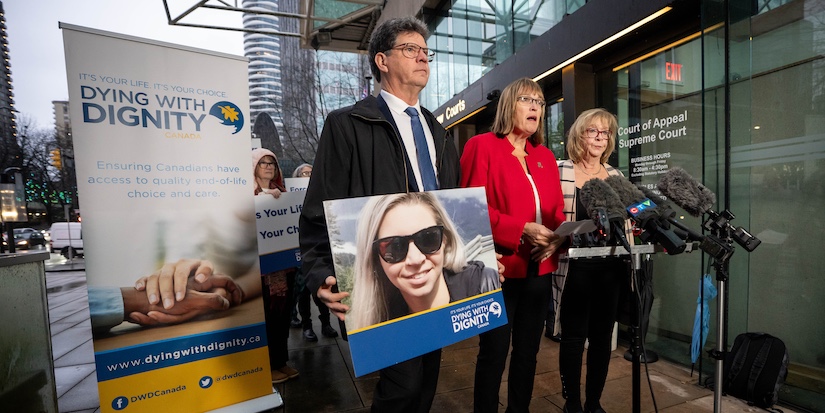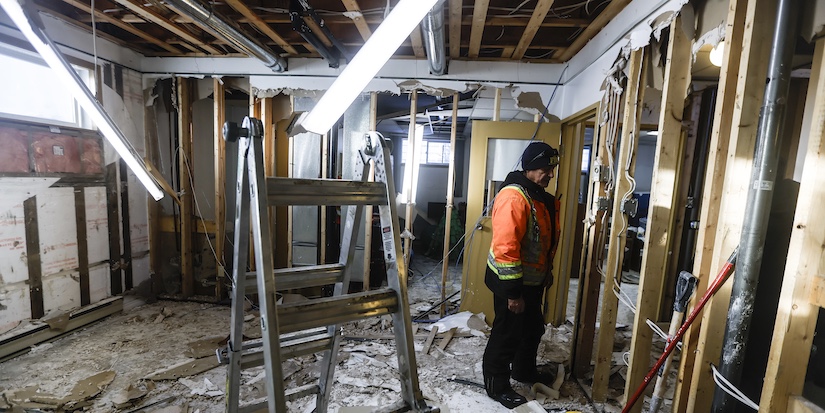Latest News
Tune in to adult education
Learn to swim. Take taiko drumming lessons.
Prepare and sample flavourful and healthy yogurt. Or stay fit with zumba.
From A to Z, it’s all possible in Richmond,
where the learning opportunities are as numerous as one’s imagination.
Take, for example, programs designed
specifically for adults.
With Richmond able to boast of many modern
recreation facilities, and programs that contribute to a healthy, active
lifestyle, it’s not surprising local residents enjoy the longest life
expectancy (85.7 years) in Canada.
“We have such a broad spectrum (of seniors),
and it’s growing,” enthuses Melanie Burner, community facilities co-ordinator
at Minoru Place Activity Centre. “Our oldest member is 105 and going strong.”
With the Minoru Centre for Active Living set
to open later this year, Richmondites will have even more opportunities to
remain on the go. The new multipurpose complex, now under construction in
Minoru Park, will include an aquatic centre, seniors centre and other
recreation and sports amenities. It will replace the outdated Minoru Aquatic
Centre and Minoru Place Activity Centre as well as the former Minoru Pavilion.
The seniors centre will be located on two
floors, with a lounge, a full-service cafe, a range of activity rooms. A
7,300-square-foot fitness centre will also be part of the facility.
Burner says the expanded space will help
accommodate both current and future programs specifically for older adults. She
says the programs range from visual arts to painting and targeted programs like
the brain health series, which helps seniors understand how the brain changes
as you age.
“We have such a big spectrum of what we think
of a senior, so having a greater range of options (with expanded space at the
new facility) for people is something we’re looking forward to,” she says.
Burner adds that the new Minoru Centre for
Active Living will also allow new strategies to be realized, including more
space to just sit and talk. She says studies have shown the importance of
socializing, and that isolation can be worse than smoking.
David Ince, manager of community recreation
services for the City of Richmond, says programming that reflects this type of
thinking is increasing. Both the City Centre and Thompson community centres
have dedicated space for simply socializing.
In the past, Ince says, programs were much
more focused on a direct benefit. Today, the thinking is much broader.
“People are more open to exploring a new
interest, while also continuing their activities instead of thinking there is a
hard stop,” he says. “(Programming) has expanded to certainly be more about
livability. When programmers sit down they’re thinking about the side benefits
besides taking an exercise class. And people are asking for new and innovative
things.”
Carol Lepine, community facilities
co-ordinator at Thompson Community Centre, says bringing people together is at
the core of what programming is all about. She says the wide range of
opportunities, including volunteering, not only helps provides people learn new
skills, but fosters a feeling of belonging.
“One important aspect is to also look at the
benefits of recreation, and the outcome of the programs which is a vital way of
connecting people,” she says. “Activating people through volunteering is a
really great way to share, learn new skills, and feel a part of things.”
Many unique, and free, education
opportunities for adults are offered through Richmond’s parks programs. Area
co-ordinator Tricia Buemann notes that the city is working with Emily Carr
University on a project around pollination, and having “a bit of an outdoor
classroom in Terra Nova.”
“There’ll be a workshop series around that
too,” she explains.
“The David Suzuki foundation started the
Butterfly Rangers, and when our children are getting more involved I think it
builds a momentum and the parents can get out and enjoy the outdoor activities
with them,” adds Buemann.
City arts co-ordinator Camyar Chaichian says
community groups are increasingly being recognized as partners. Eleven are
currently housed at the Richmond Cultural Centre and run the gamut of arts
offerings.
“Partly, we have to be sensitive that if we
do a lot of classes are we competing with those groups we are actually
housing?,” he asks. “So a lot of what we do is to complement what they do. And
if we have more arts studios open that’s good. It means more opportunities for
people.”
Chichian also noted the City of Richmond has
invested heavily in events that recognize the family dynamic, and are
well-received by the public. He said the events represent another form of
programming.
